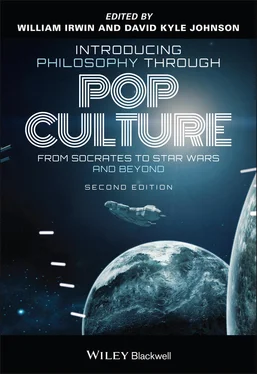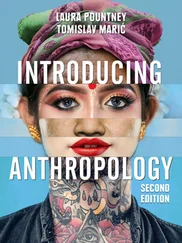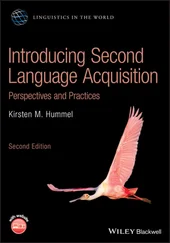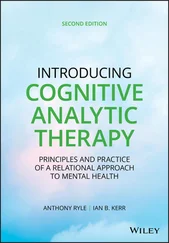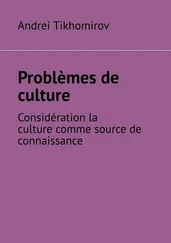13 13The Colbert Report, May 21, 2009.
14 14Colbert, S. (2007). I Am America (And So Can You!) . New York: Grand Central Publishing.
15 15Of course, you can find philosophers who disagree about whether there are facts about the taste of Baconnaise and whether Colbert is funny. If they are right, my point is all the stronger – for even these things are not relative.
16 16The Colbert Report, October 26, 2005.
17 17In case you think there is a universal truth in this matter, keep in mind that “love marriages” end in divorce more often than “arranged marriages.” Of course, this might be due to social pressures instead of marital bliss – such things are hard to tell. But that one kind of marriage is more moral than another is far from clear.
18 18The Colbert Report, April 27, 2009.
19 19The Colbert Report, May 27, 2008.
20 20My examples here are all applying American moral intuitions to practices outside of its boarders. That is because I am writing to Americans. I do not mean to imply that American moral values are somehow superior to the rest of the world. We do plenty of things wrong. For example, my guess is, in the near future, the American banning of gay marriage will be used as an example of something that was clearly morally wrong despite the majority consensus.
21 21The Colbert Report, February 12, 2009.
22 22The Colbert Report, July 31, 2006.
23 23To be fair, there are non‐naive versions of relativism out there defended by very smart people – Gilbert Harman of Princeton, for one. For example, see Harman, G. (1975). Moral relativism defended. The Philosophical Review 84: 3–22.
24 24Locke, J. (1978). An Essay Concerning Human Understanding , 291. New York: Dutton.
25 25The Colbert Report, October 17, 2005.
26 26CBS News. (2006). The Word of the Year: Truthiness. https://www.cbsnews.com/news/the‐word‐of‐the‐year‐truthiness (December 6, 2006).
27 27Locke, 291.
28 28The Colbert Report, March 20, 2007.
29 29Gladwell, M. (2005). Blink . New York: Little, Brown and Company.
30 30See Abbott, A. (2015). Unconscious Thought Not So Smart After All. Scientific American. https://www.scientificamerican.com/article/unconscious‐thought‐not‐so‐smart‐after‐all1 (January 28, 2015). See also Clancy, K. and Kreig, P. (2007). Your Gut is Still Not Smarter Than Your Head: How Disciplined, Fact‐Based Marketing Can Drive Extraordinary Growth and Profits . Hoboken: Wiley.
31 31Peirlott, M. (2009). Truth, truthiness, and bullshit for the American voter. In: Stephen Colbert and Philosophy (ed. A. Schiller ), 77–94. Chicago: Open Court.
32 32Peirlott, 83.
33 33Peirlott, 91.
34 34Colbert called them out on this, The Colbert Report, March 3, 2009.
35 35This is Ethan Mills' conclusion in (2009). Truthiness and the appearances. In: Stephen Colbert and Philosophy (ed. A. Schiller ), 95–114. Open Court.
36 36For a readable debunking of this myth, see Lanese, N. (2020). Why vitamin C won't “boost” your immune system against the coronavirus. Live Science. https://www.livescience.com/coronavirus‐vitamin‐c‐myth.html (March 10, 2020).
37 37Do moral rights always create moral duties? There are those who contest the issue. See Feinberg, J. (1973). Social Philosophy , 61–64. Englewood Cliffs, NJ: Prentice‐Hall, Inc. .
38 38The Colbert Report, April 8, 2009.
39 39Whyte, J. (2004). Crimes Against Logic , 1–10. New York: McGraw‐Hill.
40 40Which he did in The Colbert Report, June 8–11, 2009.
41 41Whyte, 9.
42 42Colbert, S. (2006). White House Correspondents Dinner. (29 April 2006).
43 43Colbert (2007), 120, 122.
44 44The Colbert Report, October 17, 2005.
45 45Colbert (2007), 126.
46 46Rabin, N. (2006). [An Interview with] Stephen Colbert. A.V. Club. http://www.avclub.com/articles/stephen‐colbert,13970 (January 25, 2006).
Part II
Epistemology
Introduction
Epistemology is the study of knowledge. Is it even possible to acquire knowledge? If so, how does one acquire it? How should one acquire it? If knowledge really is justified, true belief – which has been contested – what is truth anyway? These are the questions an epistemologist asks.
In Chapter 4, Henry Jacoby takes us to South Park to teach us about the ethics of belief. Blaise Pascal (1623–1662) suggests that belief in God can be rational because, even though it lacks evidence, it is the better bet. In contrast, William Clifford (1845–1879) argues that it is always morally wrong to believe without evidence. Stan Marsh of South Park, Colorado agrees with William Clifford. Stan is critical of belief without (and contrary to) evidence, like Kyle's mom's beliefs in holistic healing, the Mormon belief that the first man and woman lived in Missouri, and John Edward's claims that he can communicate with the dead. Examples from South Park demonstrate the dangers of belief without evidence, such as blindly following David Blaine into a mass suicide, and a mental laziness that, Stan tells John Edward, is “slowing down the progress of all mankind.”
In The Matrix Trilogy , it is revealed that the everyday world humans experience is actually a computer simulation designed to keep humans under control while an artificially intelligent civilization harvests our energy. In Chapter 5, Matt Lawrence uses the predicament in which humanity finds itself in The Matrix to explain what philosophers call “The Skeptical Problem” and Descartes's (1959–1650) solution to it. How can we be sure we're not being deceived on a grand scale like the prisoners of the Matrix?
In Battlestar Galactica , the 12 colonies are destroyed and humanity finds itself looking for a new home. Commander Adama claims he knows the location of the 13th colony – called Earth – when, in fact, he knows nothing of the kind. He simply told a lie to give people hope. It turns out, however, that there actually is an Earth and humanity eventually finds its way there. In Chapter 6, Eric Silverman uses Adama's lie to explore the classic definition of knowledge and the contemporary philosopher Edmund Gettier's conclusion that mere justified, true belief is insufficient for knowledge. The chapter concludes with a discussion of what William Clifford (1845–1879) and William James (1842–1910) have to say about whether holding non‐justified beliefs can be ethical.
In Chapter 7, Ruby Komic examines epistemic resources, the resources held by a community that an individual must draw upon to gain knowledge. Challenging racist stereotypes, Black Panther provides the viewer with epistemic resources in the form of conceptual tools to understand and communicate about Black, and particularly African American, culture and experience.
4 You Know, I Learned Something Today: Stan Marsh and the Ethics of Belief
Henry Jacoby
The nineteenth‐century English mathematician and philosopher W.K. Clifford famously argued that it is always wrong to believe anything upon insufficient evidence, even if such beliefs provide comfort and hope. Such beliefs weaken the mind while preventing the search for truth and understanding. This chapter explores Clifford's view through South Park 's resident voice of reason, Stan Marsh, as he takes on the crazy and the credulous.
A wise man, therefore, proportions his belief to the evidence.
– David Hume
People believe all sorts of things for all sorts of reasons; sadly, few people pay attention to reasons based on logic, rules of argumentation, theory, or evidence. And the inhabitants of South Park are no different. But why should we think critically and rationally? Why does it matter? What harm is there in believing something if it makes you feel good, provides you with comfort, or gives you hope? If evidence is lacking, so what?
Читать дальше
